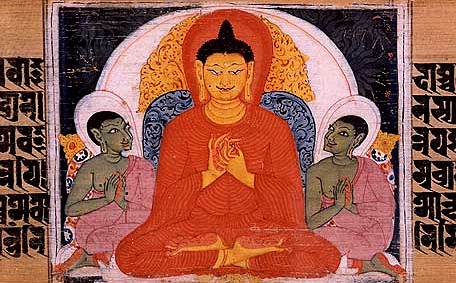I blinked recently and realized I'd been studying Buddhism off and on since 2019. It's history, it's various schools, and a thorough look at Zen from a variety of sources. In that time I've also looked a little at Stoicism.
It's difficult to summarize Buddhism in a few sentences, but after study of such depth I feel like I really and truly get it. However, unexpectedly, one of my final thoughts about Buddhism is that it's a bit of a fantasy. Yes there is a lot of wisdom and insight in it, but I'm now of the view that transcending desire is basically wishful thinking. There is no way around it - our desires are real and important for living the life we want to live. Buddhism tries to circumvent this with a bit of a mind-trick, but it may be the case that those who unabashedly pursue their desires may be a little more intuitively perceptive.
This is where Buddhism would tack on the word 'excessive' pursuit of desire which is.. fair, and I think where we can label Buddhism as a box of wisdom, like every other religion.
Stoicism, on the other hand, talks about the importance of wisdom and reason, which directly approaches life as a problem that needs to be solved. Wisdom that can be gleaned from any particular religion or source. IOW, the Eastern approach provides wisdom that can help one live a good life in a Stoic context - a particular toolset and guide. Counterintuitively, the de-emphasis on the intellect and individual 'I' is great insight to own for the intellect.
So this is largely where I'm at now, religion as a pre-scientific toolset. Religions contain wisdom, but that wisdom ultimately needs to serve real material problems.
It's difficult to summarize Buddhism in a few sentences, but after study of such depth I feel like I really and truly get it. However, unexpectedly, one of my final thoughts about Buddhism is that it's a bit of a fantasy. Yes there is a lot of wisdom and insight in it, but I'm now of the view that transcending desire is basically wishful thinking. There is no way around it - our desires are real and important for living the life we want to live. Buddhism tries to circumvent this with a bit of a mind-trick, but it may be the case that those who unabashedly pursue their desires may be a little more intuitively perceptive.
This is where Buddhism would tack on the word 'excessive' pursuit of desire which is.. fair, and I think where we can label Buddhism as a box of wisdom, like every other religion.
Stoicism, on the other hand, talks about the importance of wisdom and reason, which directly approaches life as a problem that needs to be solved. Wisdom that can be gleaned from any particular religion or source. IOW, the Eastern approach provides wisdom that can help one live a good life in a Stoic context - a particular toolset and guide. Counterintuitively, the de-emphasis on the intellect and individual 'I' is great insight to own for the intellect.
So this is largely where I'm at now, religion as a pre-scientific toolset. Religions contain wisdom, but that wisdom ultimately needs to serve real material problems.

